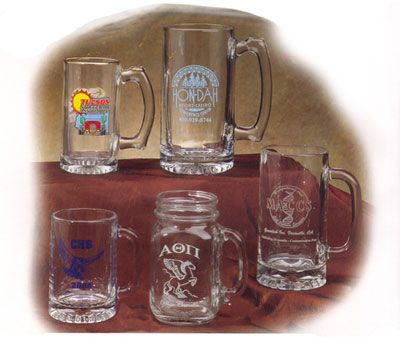Friday

Brews You Can Use
Another instance of modern academics catching up with ancient understanding: Beer may have lubricated the rise of civilization. I have long speculated (and may have internalized it from a third party, like Chesterton) that, upon receiving the grace of spiritual life, men started laughing. I can almost picture the half-men sitting around a fire, grunting and smacking each other while they fought over pieces of food. Then, wham, they receive souls, look around, and start chuckling. If something like my fanciful rendering occurred, no doubt beer would've furthered the development. * * * * * * * And heck, the article even supports this religious slant, albeit indirectly: "'Beer is sacred stuff in most traditional societies,' said Hayden, who is planning to submit research on the origins of beer to the journal Current Anthropology." If the first thing the cavemen did was laugh, then they probably wanted more of the elixir that increased that spiritual result. * * * * * * * This is a great article, and I highly recommend it to anybody who wants to understand why American liquor laws are so twisted. It's also a great snapshot of a fundamental truth: when government gets involved in private business, the result is always a grotesquerie. Excerpt, but if you're interested in alcohol, freedom, and everything else that's good in life (pardon the rhetoric), read the entire article:
Warren Buffett's Berkshire Hathaway recently purchased Tennessee's largest alcoholic beverage distributor. This move comes just months after Berkshire Hathaway also acquired liquor distributors in Georgia and North Carolina.
This is a bad sign for consumers. It's yet more proof that America's anachronistic system of alcohol distribution is here to stay. This system – which exists only because of government regulations – stifles consumer choice and keeps prices artificially high.
The laws that keep consumers away from alcohol date back to prohibition. When the “Noble Experiment” was repealed in 1933, states were given the power to regulate alcohol within their borders. Some chose to take over the sale and distribution of alcohol. But just about every other state created a “wholesale tier” to sit between producers and consumers.
In part, this was at the urging of temperance activists and retailers. Prohibitionists blamed producers for all the ills associated with drunkenness. Restaurants and liquor stores didn't like the power that producers could wield. By creating a middle tier, lawmakers hoped to weaken the influence of brewers and distillers. Instead, they simply made wholesalers incredibly powerful.
A client of mine recently obtained a distillery license. One of his main retail outlets is one mile from his house. No matter. He must drive his product to Detroit (almost three hours away), so the wholesaler in Detroit can drive it to a business in Grand Rapids (about 2.5 hours from Detroit), which then drives it back to my town (almost 2 hours away). It's unbelievable, and it's even more unbelievable that we supposedly have sane legislators who let such systems continue in existence. It screams to the corruption and repressive nature of government. * * * * * * * "That guy is three sheets to the wind!" Where did that saying come from? According to these guys, "While one might assume that the word 'sheet' represents the sail of the ship, it actually refers to the line used to control the sail. When several sheets were loose, a ship's sail would flail wildly about, often causing the ship to appear to be staggering uncontrollably, as if in a drunken state. The expression was used to refer to drunkenness even during the age of sail and was often part of a sliding scale. When a sailor was just a wee bit tipsy, he was one sheet to the wind. Two sheets to the wind described a sailor who was well-oiled, while three sheets to the wind represented a sailor who was a stumbling, slurring mess."
